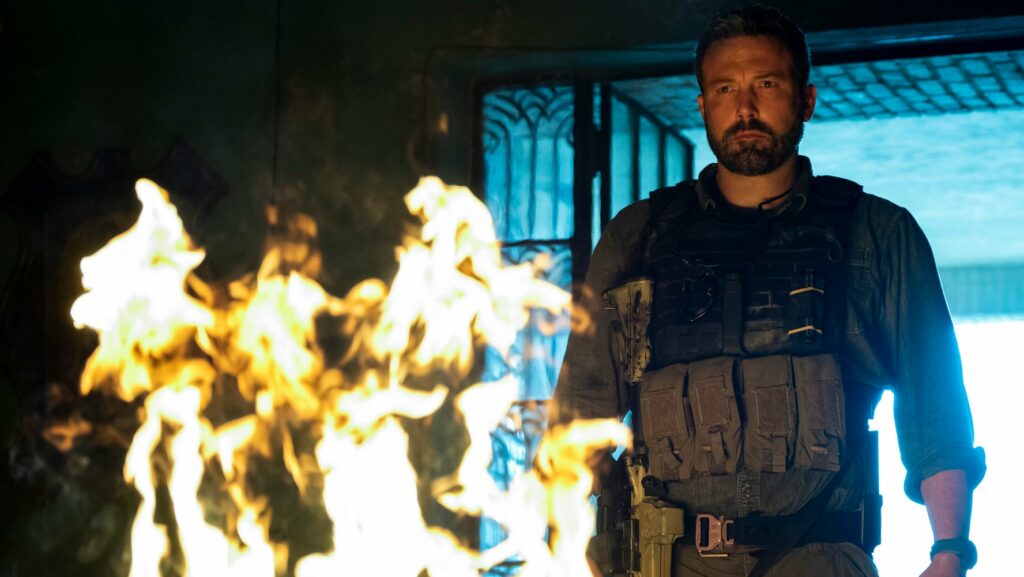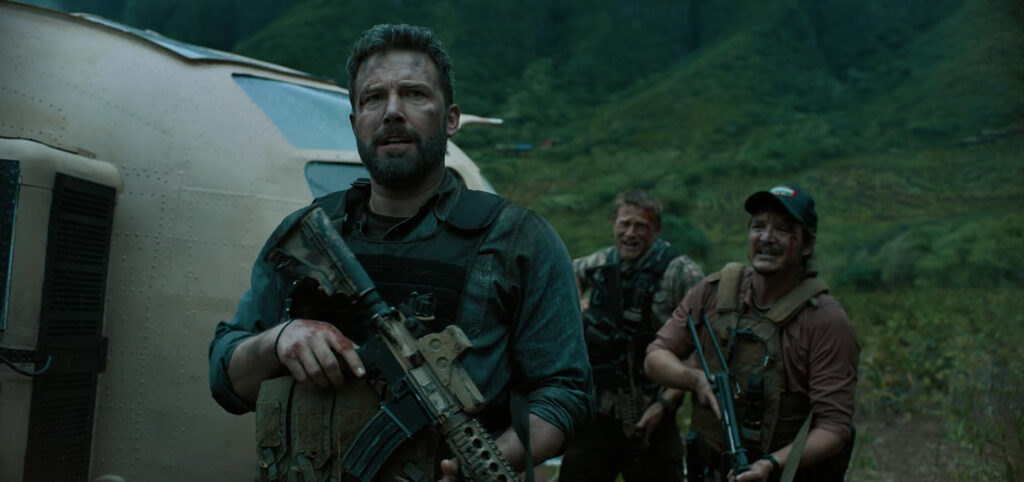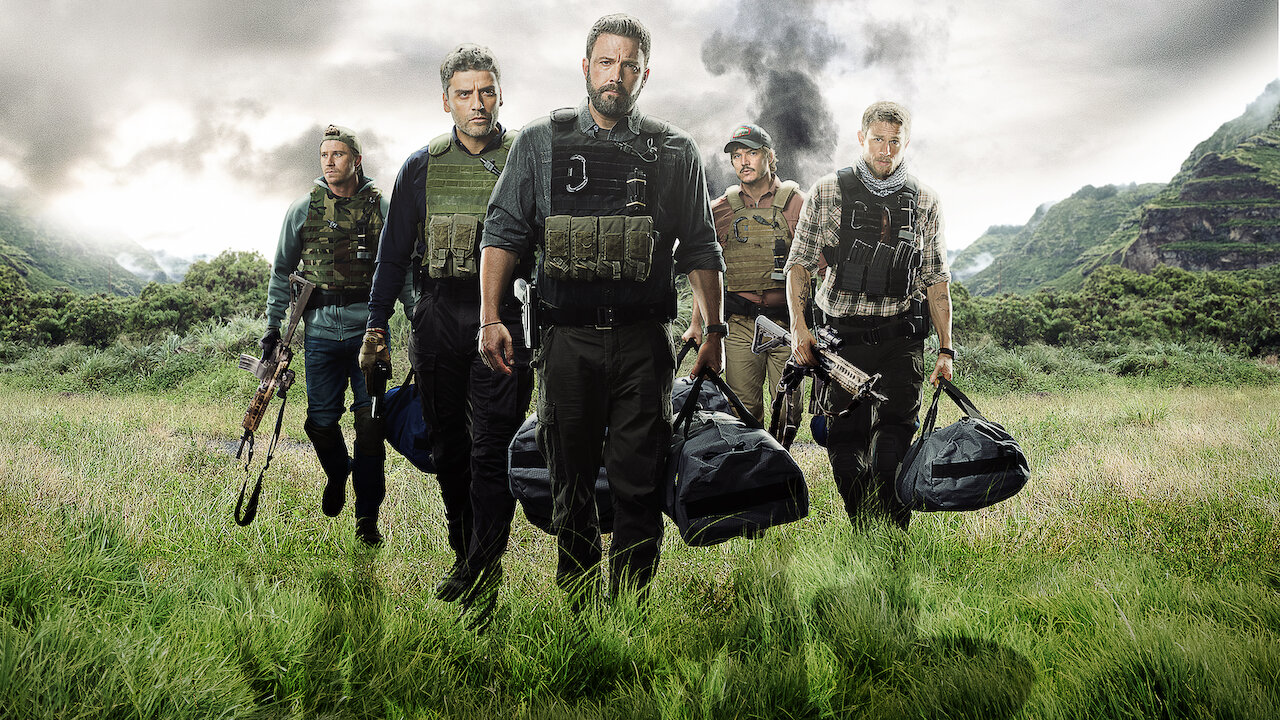Netflix has become the king of awful action movies. They have a monopoly on quadruple-crossing spies searching for nebulous MacGuffins across the globe, with chases featuring the worst CGI cars you’ve ever seen exploding between dialogue so bad you’d swear they were already using AI to script them. Heart of Stone; The Gray Man; Red Notice; The Old Guard; 6 Underground. Every week a new offender.
These films have no cultural footprint. No fandoms birthed nor unique invention, be it action scene or plot point, to keep them in the public interest for more than a few days. Netflix’s expanding action catalogue is a content machine, a way to pump out a large volume of cinematic matter to add to the minutes-watched statistics that rule the algorithm. They keep viewers watching, between rewatches of The Office, enough to slow, but not cease, the service’s subscriber count from dwindling further.
These action flicks are this era’s straight-to-DVD lowest-common-denominator trash. Except they have ginormous budgets. I don’t know how this model is successful; how Netflix can justify the expenditure on something that comes and goes in mere days, leaving a space to be filled by the next disposable gunfest. Even the best action franchises that these lame imitators are desperately trying to ape are struggling to succeed: it can be argued that the latest Mission Impossible, a good film, is a box office bomb. Yet somehow Netflix has made a model of it, a sustainable supply of crap to flood the release calendar. It’s seemingly good for the service but bad for any consumer wishing to watch anything of quality.
This brings us then to what was a monumental, and very welcome, surprise one evening as I was scrolling through the rivers of dreck on Netflix and saw a Netflix-produced action thriller that I dared take a chance on. Somehow, it was great. The Kathryn Bigalow-produced, Disasterpeace-scored, J.C. Chandor-directed Triple Frontier. A group of struggling former Delta Force operatives decide to take on their own personal mission to steal millions in cash from a South American crime lord, but come unstuck when the lines between doing the right thing and selfish desire become blurred.

The film has a stacked cast, and reading up on the movie’s long road to production, about every major actor in Hollywood was signed on to star at one time or another. Ultimately the core group are Oscar Isaac, Ben Affleck, everyone’s favourite TV dad/daddy Pedro Pascal, Charlie Hunnam, and Garrett Hedlund. Andor’s Adria Arjona also does great work in a smaller side role that could have been expanded. There’s solid chemistry between the cast, with Isaac and his impossible-to-extinguish charm linking everyone together. Affleck was the one I initially had a little trouble with. Is he actually good is this? Is he trying? But as the film continued I came to enjoy his performance. He’s intentionally flat and tired at the start to show his character’s headspace but soon he progresses into something darker, intense, and appropriately unlikable. I now think it’s my favourite performance by him in a long time.
Being structurally unexpected, the heist isn’t some third act bonanza built towards for two hours. Instead, it occurs midway through the movie and Triple Frontier becomes all the more fascinating because of it. This is not just a heist movie, but a story about what it means to get away with a heist, a crime of greed, both literally and logistically but also morally. It’s a film with something to say on the matter. It begins by exploring how military veterans are treated and shifts to deal with greed and corruption in several forms. It ponders when such action goes from doing the right thing for good reasons to crossing the line to wrong, selfish desire and malfeasance.
I know what you’re thinking: I’ve conveniently ignored the Extraction movies in my point about all but one Netflix action flicks being bad. While it’s true Extraction has some brilliant action, that’s all it has and I’m not impressed with those two films overall. Between the standout set pieces is mere, generic connective tissue: no story or investment. By comparison, as discussed, Triple Frontier is about something.
The film is engaging, perhaps more so, when people aren’t shooting guns at each other. When action does fizzle up from the tension, the sequences are solid. It’s not huge battles and destruction but rather smaller scale, tension-filled beats that are well-executed. It’s satisfying to see the group stealthily sneak through a mansion, taking out guards quietly, and then to have a sudden burst of loud violence rather than 20-minute chases where half a city explodes. I felt more video game influences than anything else, from Call of Duty to things like Ghost Recon Wildlands.

Triple Frontier is not a perfect film. It’s not above the occasional cliché. It begins with a vehicle convoy through a South American town which, like in every movie of this kind, is attacked by RPG-wielding bad guys. Someone utters the phrase “not what I signed up for” at one point. And they even play CCR’s Run Through the Jungle during a helicopter tracking shot of a jungle. More significantly however, the film doesn’t fully commit to or accomplish its objective. It dabbles with selfish desire and the corruption of wealth but it pulls its final punch, daring not land on what felt like the inevitable conclusion of infighting and bloodshed. But the more I think of it, the ending we do get, which surprised me, does deal with the consequences of this theme in an interesting way.
Despite the film’s star power and blockbuster budget, I hadn’t heard of it. It came and went in the night four years ago, replaced on Netflix’s trending list no doubt by another such action film immediately afterwards. But Triple Frontier shouldn’t be treated as disposable and lumped in with all of Netflix’s other action movies. It’s a proper, meaty, entertaining film far ahead of the service’s other efforts.











